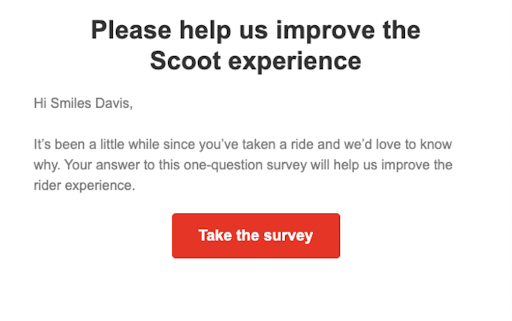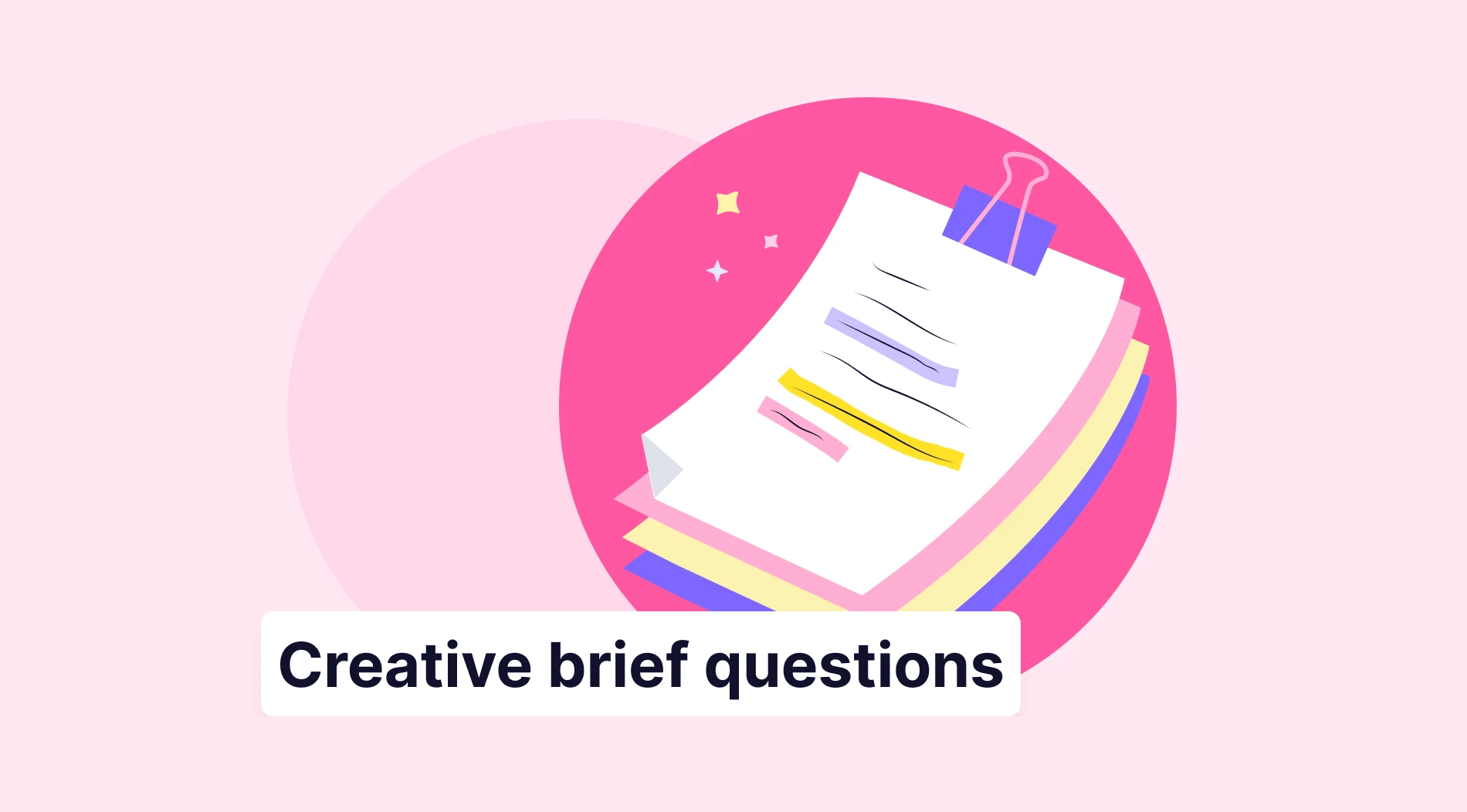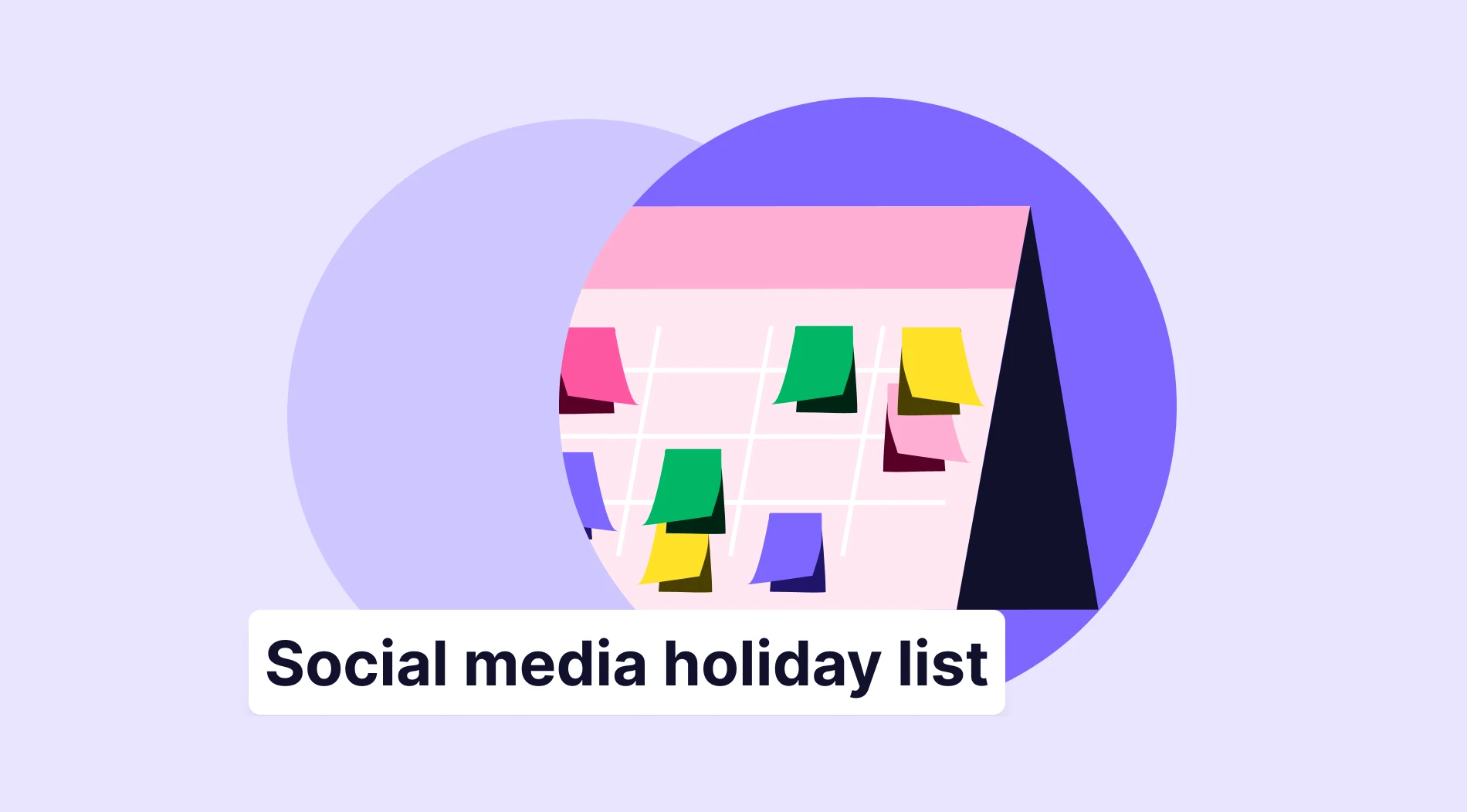Do you want your brand to stay competitive, effectively retain customers, and focus on the right growth points? Then you should absolutely prioritize customer feedback. Conducting surveys is one of the best, time-tested ways to gain profound insights into customer experiences with your brand and learn from this data.
But what if your survey just doesn’t generate enough responses no matter how well you’ve designed it? Chances are, you’re just not advertising it right to your audiences. And here’s where survey invitation emails can make or break your whole data collection effort. In this comprehensive guide, we’ll show you 9 actionable practices and 4 templates to swiftly create attractive survey invitation emails.
Why Survey Invitation Emails Matter
So why can’t you just send out survey links to your recipient lists and wait for the results to pile up? The truth is, just like with any other marketing strategy, you need to convince customers to participate in the survey and make this action worthwhile for them.
Sending a survey invitation email is the perfect way to do this. After decades, email is still one of the most efficient outreach and communication channels. Many email types exist, and the topic of this article, invitation emails, is a well-known type for people. So you can kill multiple birds with one stone (aka survey invitation email):
- Catching customers’ attention. If you compose a strong survey invitation email, you’ll effectively grab and hold customers’ interest just long enough to motivate them to participate in the survey even if they don’t regularly do it. The email is the proverbial spark that starts a fire;
- Securing higher response rates. Needless to say, a quality survey invitation email should serve its main purpose of scoring you as many responses as possible;
- Building relationships with customers. Remember that survey invitation emails become part of your overall marketing strategy. You can use them to strengthen brand-customer relations by maintaining the right brand tone, communicating your brand mission, and fostering brand trust.
Survey Invitation Emails: 9 Best Practices
Now, what can you do to yield the benefits of survey invitation emails and really make them work for you? Of course, a one-size-fits-all approach to creating survey invitation emails simply doesn’t exist. But you can turn to these 9 tips and align them with your overall brand messaging and email marketing strategy. These practices will help you sustainably produce survey invitation emails that work.
1 - Start strong with a catchy subject line
Your subject line is the first thing recipients see when they receive an email. It is also one of the key factors determining if the customer will open the letter or not. That’s why you should come up catchy subject line to get people interested in your survey.
What does an excellent survey invitation email subject line look like? Consider these crucial aspects:
- It is short and clear. You only have that much space to get your point across, don’t be wordy;
- It is descriptive. State the purpose of the email and let recipients know why you’re reaching out;
- It initiates engagement. It offers recipients to take clear action by opening the letter;
- It is personalized. If you can, personalize your subject line by using the recipient’s name or focusing the survey on a specific product they’re interested in.
The most effective and welcoming survey invitation email subject lines can be as long as 5-8 words – nothing extra.



2 - Personalize the survey invitation email
We’ve already mentioned the impact personalization can have on the email subject lines in the previous point. The same holds true for the main body of your survey invitation emails.
Remember: email personalization is not just about using the customer’s name throughout the letter. You can ace email personalization by:
- Using a friendly, informal tone. Don’t create unnecessary distance between your brand and the recipient. Stay friendly and down-to-earth in your survey invitation email;
- Leveraging email list segmentation. Send your survey invitation letters to those recipient segments that will find them relevant at a particular stage of their customer journey.
These simple personalization tips will make your survey invitation emails all the more attractive and targeted at the right recipients.

3 - Establish a clear survey purpose
Simply stating that you want to invite the recipient to participate in a video testimonial or a feedback survey is not enough. Why are you running the survey in the first place? What do you want to achieve by obtaining the data from your customers? Recipients should know why the survey is important. For example, you can explain how:
- the survey will make customer’s overall experience with your brand better;
- it will help you improve the quality of your product/service;
- it will enhance your marketing efforts;
- it will allow you to better carry out your brand mission;
- it will boost personalized recommendations to the recipient, etc.
You don’t need to write a lengthy explanation to convince customers of the validity of your reasoning. In fact, one or two short sentences will be just enough. You don’t want to overload the survey invitation email with unnecessary information anyway, right?

4 - Let recipients know how long the survey will take
People don’t want to spend too much time on surveys – that’s a given. They only want to know how long (exactly) a survey will take them if they’ve decided to take it.
Always clearly state how much time you’re asking the recipient to dedicate to your data collection effort in the survey invitation email. Whether it’s 2 minutes or 20 – be open and precise with the number.

You can also take an alternative path and tell customers how many questions the survey contains. It’s an especially beneficial strategy for shorter 1-2 question surveys. People are ready to hop onto those precisely because they won’t eat up much of their time.

Pro-tip: if you have a short, 1-3 question survey for your customers, it’s a good idea to simply embed it within the survey invitation email. It will help you score even more responses since people don’t need to click any additional links and leave the email.

5 - Give your customers an incentive to participate
If you can afford it, why not offer the participating customers a reward for taking the time to complete the survey? Use survey invitation emails to announce the incentive and tell recipients how they can redeem their prizes. Some simple incentive ideas include:
- coupon codes;
- discounts;
- gift cards;
- loyalty program memberships, etc.

Pro-tip: can’t offer any tangible incentives to your recipients? It’s not a big deal! Instead, you can give them a clear explanation of how the survey will improve your product/service in an actionable way. Will you use survey results to work out a better product delivery method? Create more durable packaging? Provide more efficient customer support? Let your objective be known to customers. In addition, offering incentives, don’t forget to follow DMARC reports and ensure that your account is safe from email security threats and that your message would be delivered to the email lead’s inboxes.
6 - Make the survey link stand out
To boost the impact of the survey invitation email further, make sure the survey link is attractive and clickable:
- make the survey link button stand out with a different font, font size, and/or color;
- add a strong CTA. You can do it before the survey link button or actually turn the button into a CTA (see example below);
- if you can, marketers recommend that you save recipients time and place the survey link closer to the top of your survey invitation email. However, putting it at the bottom is also effective, especially if your invitation email is short.

Pro-tip: don’t underestimate the role of your survey link button design. Conduct A/B testing to see how different design options perform in a survey invitation email to pick the one that gathers the most responses from recipients.
7 - Express your gratitude
Let recipients know that your brand appreciates their contribution to your growth and continuous improvement. The simple gesture of thanking your customers can go a long way – and it’s not only about scoring more survey responses. This is also a subtle yet effective way to build and maintain better brand-customer relations.
So add a short sentence thanking your recipients to your survey invitation email and close your emails. Or even make it the letter title, just like in the example below!

8 - Send a reminder survey invitation email
Sometimes your recipients do get interested in the survey but put off participating in it for one reason or another. For such cases, it’s a good idea to send reminder survey invitation emails and gently push customers to follow up on their intention.
Keep reminder emails short, friendly, and light. Emphasize the survey link and accompany it with an effective CTA. You can shorten or even omit other survey invitation email components this time.

9 - Optimize your survey invitation emails for mobile devices
Last but not least – make sure your survey invitation email is “device-inclusive”. Many people prefer checking their inboxes via smartphone, and if your survey invitation isn’t mobile-friendly, they just won’t bother going through it and clicking the survey link.
Don’t forget to test the appearance and functionality of your email on smartphones and tablets before you send it out.
Survey Invitation Emails: 4 Actionable Templates
As you might have realized, creating an effective survey invitation email is simple if you know what elements to pay attention to.
You’ve already seen some great examples of survey invitation emails from real brands in the previous section. Below, you can find 4 universally applicable survey invitation email templates to use to advertise your next survey.
Template 1: General
Subject: Your opinion matters – share it with us today!
Hi [Name],
We value your opinion and would like to invite you to participate in our survey. Your feedback will help us improve our [product/service] to better meet your needs in the future.
The survey will only take [time] to complete and we won’t share your responses with third parties. We're also offering [incentive, if any] as a thank you for completing the survey.
Please follow the link below to get started:
[Survey link]
Thank you for your time! We appreciate your valuable input!
Best, [Your name]
Template 2: Reward-focused
Subject: Get [Incentive] for completing our survey!
Hi [Name],
We are conducting a survey to better understand our customers' needs and would like to hear from you. Your feedback is very valuable and it will help us improve our [product/service].
As a thank you for your time, we're offering [Incentive] to everyone who completes the survey. The survey will take approximately [time] to complete and your responses will be kept confidential.
Please click on the link below to get started:
[Survey link]
Thank you for your time and valuable input!
Best, [Your name]
Template 3: Urgency-based
Subject: Don't miss your chance to share your opinion!
Hi [Name],
Would you like to help us better understand our customers' needs? We would like to hear from you! Take our survey and we’ll use your answers to work out the best ways to improve our [products/services].
But time is running out! The survey will only be open until [deadline date], so please complete it as soon as possible.
Completing the survey will take just [time] of your time. We appreciate your input and are offering [incentive, if any] for taking the survey.
Please click on the link below to get started:
[Survey link]
Thank you for your time and valuable contribution!
Best, [Your name]
Template 4: Product-centered
Subject: We need your help to make our new product even better!
Hi [Name],
We're thrilled to have you as one of our valued customers and would love to hear your thoughts on our new product. Your feedback is essential to us as we strive to create products that meet your needs and expectations.
We promise the survey will only take [time] and your responses will be kept completely confidential. As a token of our gratitude, we're offering [incentive, if any] for your contribution.
Please click on the link below to take the survey:
[Survey link]
We truly appreciate your time and effort, and we're excited to hear your honest feedback. Your input will help us make our product even better and deliver a better experience for you and all our customers.
Thank you so much for your continued support!
Warm regards, [Your name]
Conclusion
Survey invitation emails can be a true game changer if you’re seeking to maximize the reach and impact of your survey. Now you know that an effective survey invitation email should:
- have a catchy subject line
- clearly explain the purpose of the survey and tell recipients how they will benefit from completing it
- give an overview of how much time the survey will take
- have a strong CTA and visible survey link button
Follow these and other tips from this guide to create actionable survey invitation emails no matter what type of survey you’re conducting. And don’t forget to check out our other blog posts to learn even more about building effective forms, surveys, and quizzes.



